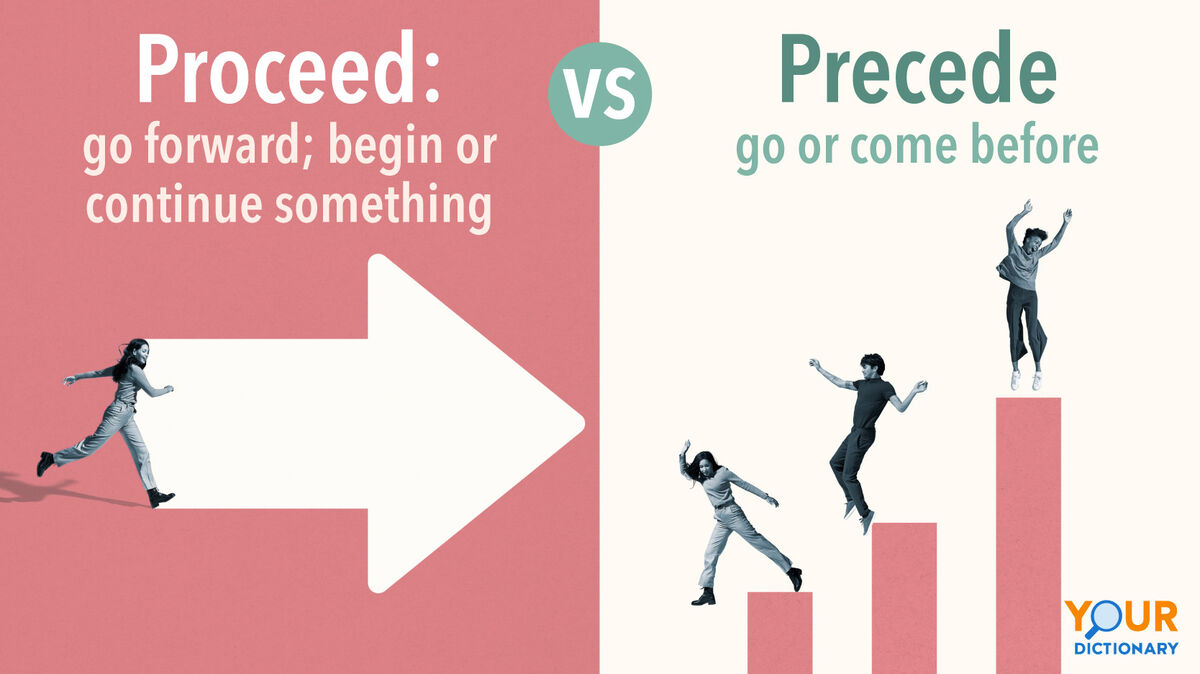
It’s understandably easy to confuse proceed and precede. After all, they look and sound similar, so it’s only natural to assume the terms are related. In fact, they are opposites. Discover the difference between proceed and precede, as well as their origins, meanings and uses.
Proceed and Precede: The Difference Defined
While proceed and precede look and sound similar, they are distinct words with different prefixes and meanings.
proceed - to go forward; begin or continue something
precede - to go or come before
Meaning and Usage of Proceed
Proceed means “to begin or continue with something.” The word is derived from the Old French proceder, which itself comes from Latin procedere meaning “to advance or go forward.” In this context, the prefix pro- means “forward.” Proceed is a verb used to indicate the action of continuing or moving forward.
Proceed with caution.
We proceeded to the hotel.
After the situation was resolved, we were allowed to proceed.
How to Use Precede in a Sentence
Precede is a verb derived from the Latin word praecedere, which is made up of prae (“pre”) and cedere (“to go”). The prefix pre- means “prior to” or “earlier than.” Therefore, precede means “to go or come before.” This can apply to either time or place. It can also mean to come before in rank, order or importance.
The event will precede the game.
Chest pains often precede a heart attack.
His qualifications preceded his name.
What About Proceeds?
There are actually a couple of different ways you can use proceeds. On one hand, proceeds is a form of the verb proceed that means “to continue.”
- If this weather proceeds, we will have to postpone the party.
- Life ends, but time proceeds.
- She's told to give up, but she proceeds anyway.
On the other hand, the noun proceeds refers to the money obtained from an event or activity, usually to do with business or charity.
The proceeds will be donated to charity.
The proceeds of the sale were split.
The year’s proceeds exceeded last year’s.
Proceed to the Correct Word
There are many words that can easily be confused because they look or sound similar. For example, conscience and conscious or gage and gauge may look related, but they have different meanings and uses. Review and memorize these terms so you can always choose the correct word.